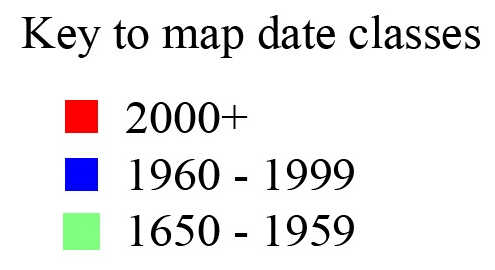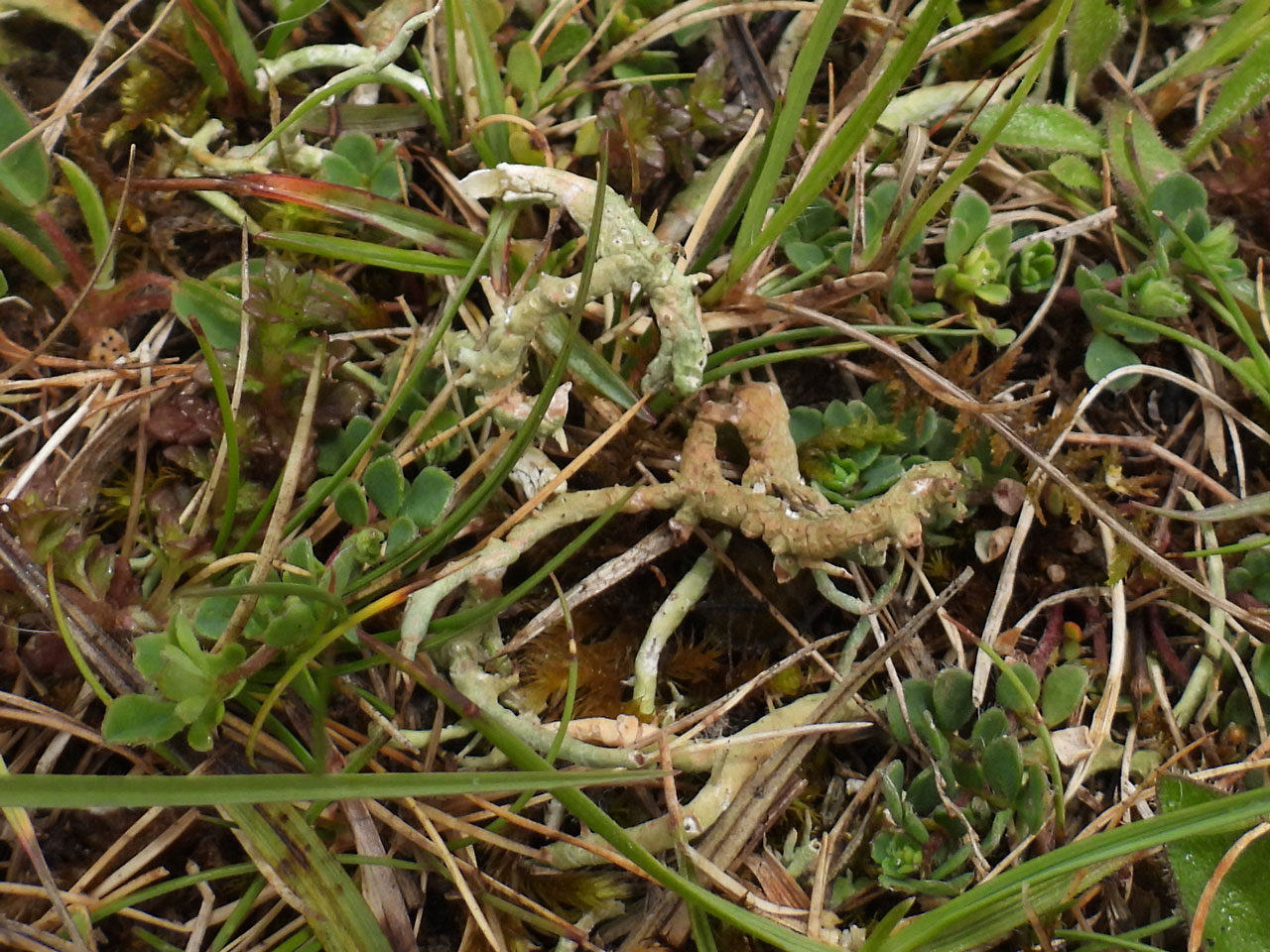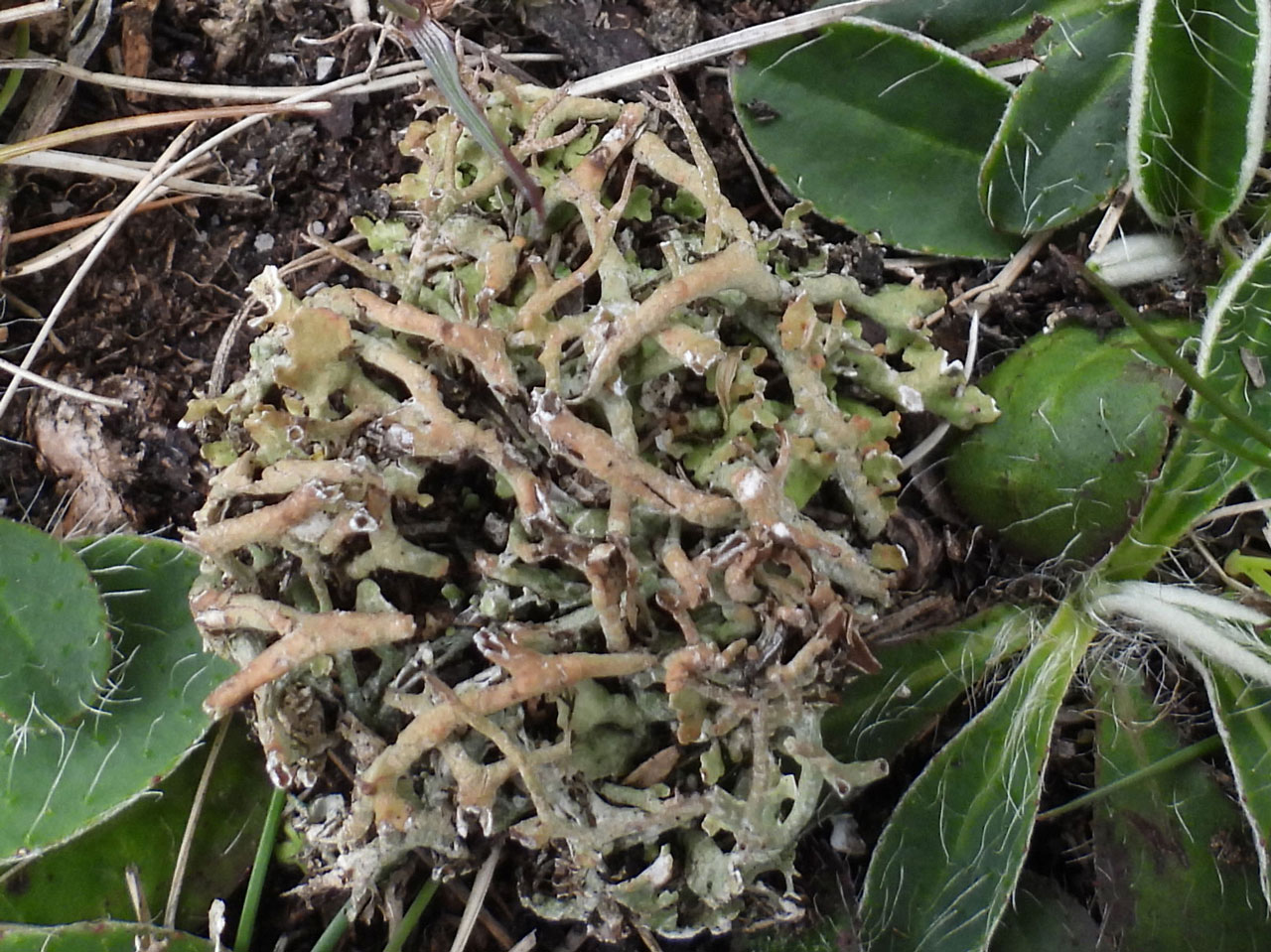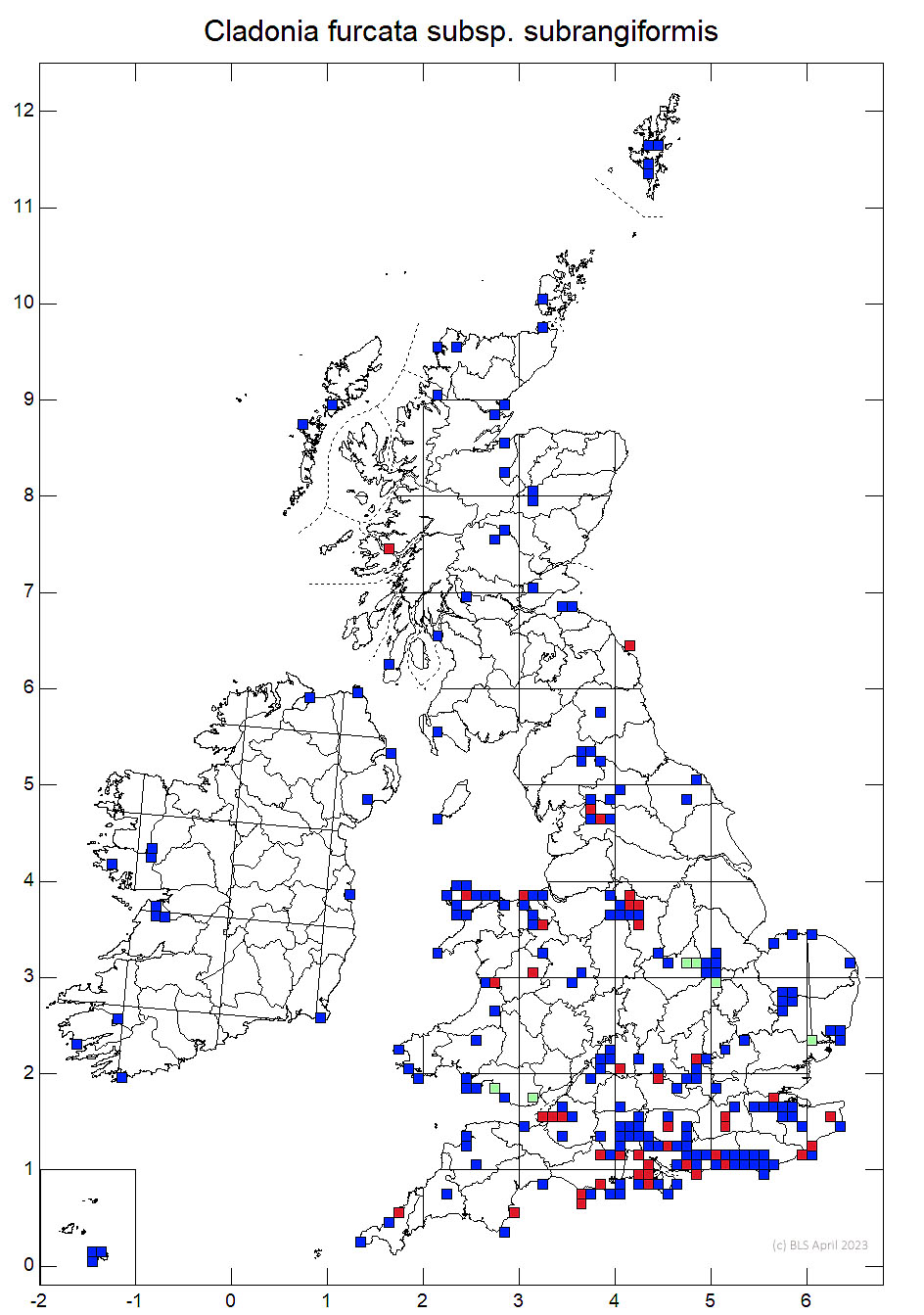Cladonia furcata subsp. subrangiformis
This taxa differs from C. furcata in the presence of raised starkly white ± circular concretion-like spots (of calcium oxalate crystals) towards the base of the olive to dark brown podetia formed by local rupturing of the cortex; the often prostrate and little- branched, worm-like, habit and robust appearance; and the presence of short lateral branches which often arise ± at right angles from podetia. It is found on calcareous soils and the morphological differences may be at least partially habitat-related, with the deposition of calcium oxalate crystals a mechanism to deal with an excesses of calcium ions. Cladonia furcata subsp. subrangiformis was recognised by James (2009) but a phylogenetic study by Pino-Bodas et al. (2015) could not distinguish adequately between the two taxa.
For the time being the taxa is still being recorded by the BLS mapping scheme.

James, P.W. (2009). Cladonia. In: Lichens of Great Britain and Ireland (Smith, C.W., Aptroot, A., Coppins, B.J.,
Fletcher, A., Gilbert, O.L., James, P.W. & Wolselsey, P.A. eds): 309–338. London: British Lichen Society.
Pino-Bodas, R., Burgaz, A.R., Martín, M.P., Ahti, T. & Stenroos, S., Wedin, M. & Lumbsch, H.T. (2015). The phenotypic features used for distinguishing species within the Cladonia furcata complex are highly homoplasious. Lichenologist 47: 287–303. Link
Pino-Bodas, R., Sanderson, N., Cannon, P., Aptroot, A., Coppins, B., Orange, A. & Simkin, J. (2021). Lecanorales: Cladoniaceae, including the genera Cladonia, Pilophorus and Pycnothelia. Revisions of British and Irish Lichens 19: 1-45. Link
Text by Neil A Sanderson, based on Pino-Bodas et al (2021)


